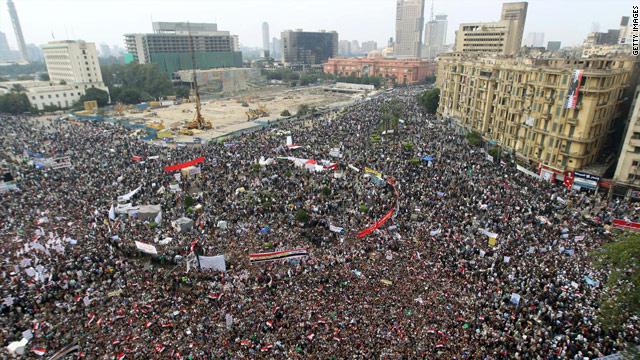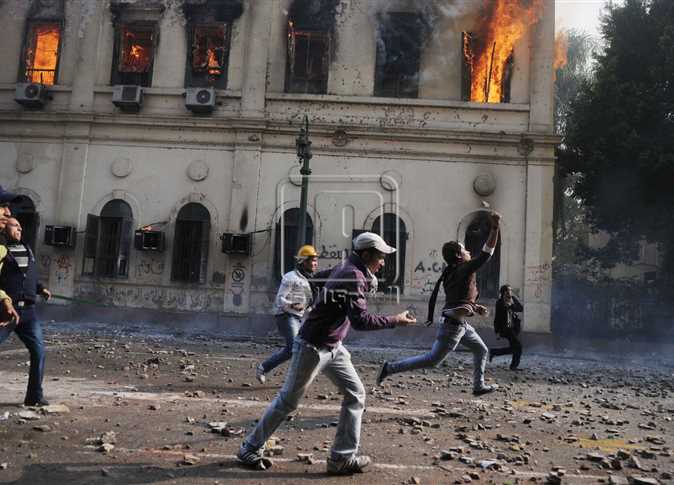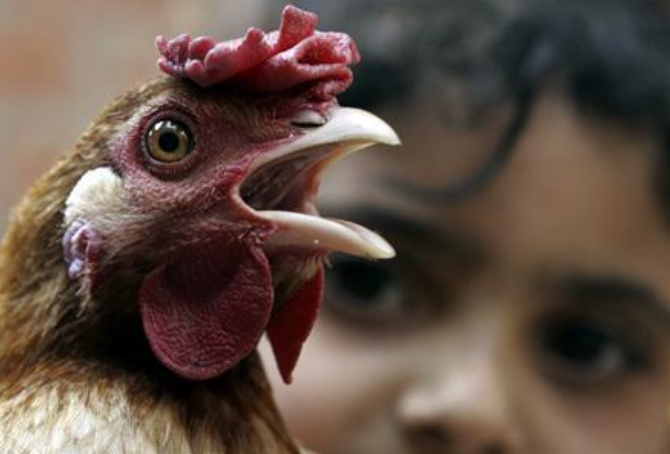Two weeks after the ruling National Democratic Party (NDP) concluded its sixth annual convention, Egypt’s opposition groups have grown more divided over the best strategies to prevent the “scenario of presidential inheritance.”
Support for independent figures such as the outgoing head of the UN nuclear watchdog Mohamed ElBaradei and secretary general of the Arab League Amr Moussa have been the most contested issues in the political scenery.
In a televised interview with CNN, ElBaradei, a Nobel Peace Prize laureate, said he would not rule out running for the presidency as long as he had “written” guarantees that the 2011 presidential elections would be “free and fair.”
The 67-year-old Egyptian diplomat’s remarks have stirred conflicting reactions and further confused an already perplexed opposition.
Veteran writer Fahmy Howeidy calls ElBaradei’s comments on presidential candidacy as “absurd.”
In his column in the independent daily Shorouk, Howeidy writes that “the outcomes of the next presidential elections are predetermined. It’s either [President Hosni] Mubarak or his son.”
For the Islamist-leaning writer, Egyptian politics have been constructed in a way that leaves no chance for a non-NDP contender.
Howeidy advises “the good-hearted” director of the International Atomic Energy Agency not to run because “the regime only wants a respectful second role actor to make its film appear more democratic.”
Other writers describe ElBaradei as “detached” from Egypt’s socio-economic realities, an accusation that has also been leveled at Gamal Mubarak. Unlike all of Egypt’s presidents since the 1952 revolution, neither Mubarak nor ElBaradei is a civil servant or militar officer.
Columnist Omar Taher writes in the independent daily Dostour that ElBaradei has actually lived in Egypt for only six years (1974-1980) since he first left in 1964 to pursue a master’s degree in International Law in Geneva.
“ElBaradei only knows Egypt through the lens of a tourist,” says Taher. He explains that “ElBaradei is unaware of our daily problems. He doesn’t know the cost of a loaf of bread and the price of a metro ticket. He doesn’t have a clue about the matrices of our relations.”
Amr Moussa, who hinted last month that he might run for presidency, has also received his share of criticism in the press.
Columnist Alaa Oureiby of the opposition daily Al-Wafd reviews a book by former Arab League and Syrian diplomat Kawkab al-Rayes in which the author accuses Moussa of “corruption and nepotism.”
Oureiby quotes some parts of the book that highlight “Moussa’s favoritism to some of his loyalists to promote them into the high ranks of the Arab League at the expense of the more qualified and better trained diplomats.”
Divisions among Egyptian opposition platforms took a more dramatic step this week when Kefaya’s General Coordinator Abdel Halim Qandil decided to withdraw from the one-month-old Egyptian Campaign Against Presidential Succession on the grounds that its founder, Ghad Party leader Ayman Nour, had received an invitation to participate in a seminar organized by the Washington-based National Endowment for Democracy (NED).
Mohsen Hashim, a leading member of Kefaya and a close aide of Qandil, told the independent weekly Al-Youm Al-Sabea that Kefaya’s decision was based on the fact “that the NED is funded primarily through the US congress” which jeopardizes its credibility as an independent NGO.
Hashim added that Kefaya adheres to its founding principle of “rejecting any kind of support from foreign powers.”
Nour, a former presidential candidate who spent four years in prison on charges that he allegedly forged his party’s founding documents, strongly dismissed the charges.
He told the daily Dostour that “he has never received any funds from the United States or other countries,” describing Qandil’s stance as “childish and irresponsible.”
According to the state-run daily Ros el-Yusuf, Nour has accused other Nasserists members of the anti-succession campaign of receiving grants and funds from foreign states. Ros el-Yusuf quotes unidentified sources in Ghad Party as saying that Nour told his fellow colleagues that “a leading member in the Nasserist Karama Party did receive funds from Qatar last month without any charges of him being an agent of a foreign state.”




